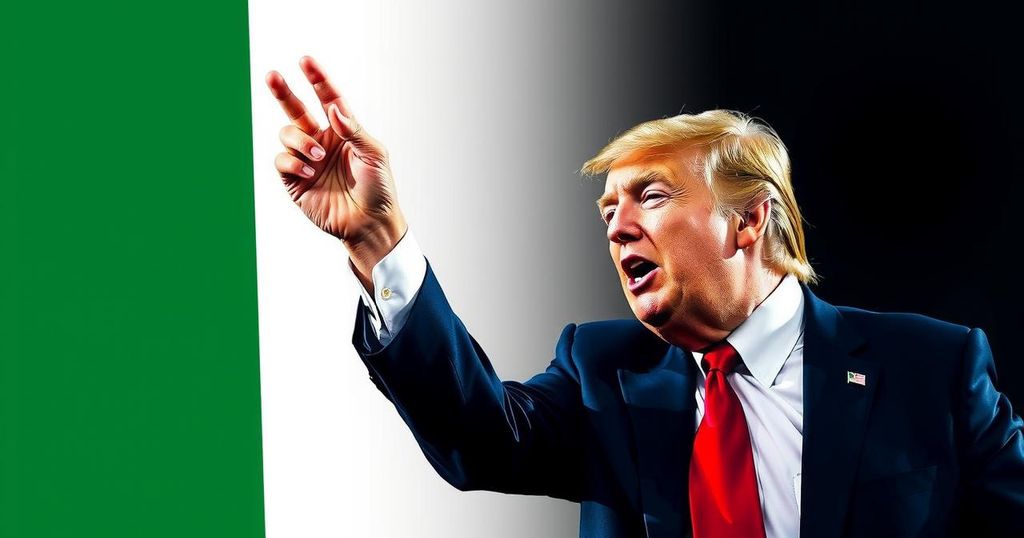Donald Trump’s win heralds a potential shift in U.S. foreign policy that may adversely affect Nigeria. His focus on “America First” indicates a reduced commitment to international involvement, potentially leading to stricter immigration policies and economic protectionism. Nigerian leaders express hope for cooperation, yet concerns persist regarding the implications for trade and human rights.
The recent victory of Donald Trump in the United States presidential election has significant implications for Nigeria and other African nations. Trump’s commitment to an “America First” policy suggests a reduced focus on international intervention, leading to a plea for African nations to handle their own affairs in terms of security and economic support. During his first term, Trump’s limited engagement with Africa raises concerns, especially regarding immigration policies that could lead to aggressive deportations of undocumented migrants from the continent. Furthermore, Trump’s economic policies may impact Nigeria’s ability to compete in global markets, as he has previously indicated intentions to impose tariffs on imports from various countries, potentially undermining trade relationships. Nigeria’s leaders, such as President Bola Tinubu, have expressed hopes for continued collaboration with the U.S., but regarding Trump’s opposition to LGBTQ rights, it appears that Nigeria’s stance may not face external pressure. Overall, Trump’s administration is expected to maintain a focus on protecting American interests, which could complicate the ongoing development efforts in Nigeria and across Africa. The anticipation of a more isolationist approach calls for a careful reassessment of the relationship between the U.S. and the African continent moving forward.
Donald Trump has recently secured a historic second term as the President of the United States, defeating Democratic candidate Kamala Harris. His policies, particularly the “America First” doctrine, denote an inclination towards reducing foreign aid and emphasizing national interests, which could significantly affect interactions with countries like Nigeria. Trump’s previous term was marked by a lack of diplomatic engagement with Africa, and his administration’s stance on immigration and economic policies poses potential challenges for Nigeria’s socio-economic landscape.
In summary, Donald Trump’s reelection could signify a shift in U.S. foreign policy towards minimal involvement in African affairs. While there are aspirations for stronger ties between the U.S. and Nigeria, the likelihood of rigorous immigration policies and protectionist economic strategies raises concerns about the future of cooperation and development efforts. Stakeholders in Nigeria must prepare for a potentially challenging landscape in light of Trump’s presidency.
Original Source: www.bbc.com






